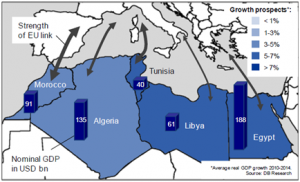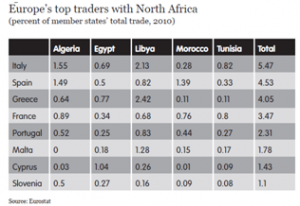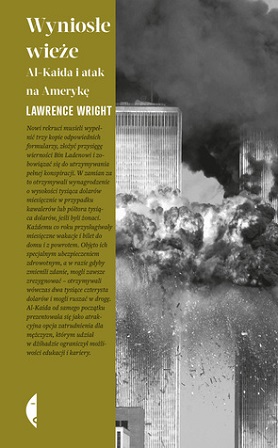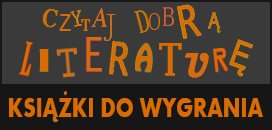Executive statement
After the short introduction of what launched Arab Spring events and how did they change current world situation I try to present briefly how authors of three publications of European Council of Foreign Affairs, German Marshall Fund and Instituto Affari Internazionali discuss the response of European Union to Arab Spring, with a division on particular projects and programmes launched by EU; namely “more for more” and “3Ms”, Mediterranean Union, European Neighbourhood Policy and European Endowment for Democracy. After describing abovementioned European activities I tried to show the most crucial recommendations stated in the three papers, dividing them into most crucial categories, i.e. promotion for regional integration, diplomacy, militia and conditionality.
Introduction
When Muhammed Bouazizi immolated himself on December 17 2010, he ignited Tunisia and the rest of the Arab world with him – with those words, Shafeeq Ghabra describes the beginning of Arab Spring. From self-immolation of a simple Tunisian vendor in a small village to one of the most unexpected revolts in current world. This act of protest led to the Arab Spring – abolition of regimes in countries of Middle East and North Africa (so called MENA region). The protest spread from one country to another – from Tunisia to Egypt, from Egypt to Yemen and Bahrain and then to Libya, Algeria and Syria. The most highlighted and helpful tool in transmitting information concerning protests were new media, through which young people learnt how to cope with tear gas or how to sabotage security forces using paint spray. It is therefore the most vivid proof that it is a revolution of youth against rigid and obsolete system, praised by the elders, regime leaders and monarchs.
It is currently one of the main issues, with which international community is dealing with. Everyone wants to help, everyone wants to have their share in rebuilding and creating the shape of the Arab countries. Most influential are USA, Iraq, Turkey, Qatar and European Union. It would be one-sided to leave listing beneficiaries at this point. There is also other side of the coin – countries of MENA region can also profit from those multilateral relations, especially in the context of internal security and interests. Eman Ragab highlights three major changes, which took place in the Arab world, and should be taken into account by all the international actors:
1.The shift from traditional roles in region – Iraq, Turkey and Qatar as emerging regional powers,
2.Changes as source of threat for countries undergoing internal transformation, and as path towards development for others,
3.Rising power of non-state actor, i.e. the Muslim Brotherhood.
EU is one of the most involved organisations in the process of transformation of countries entangled by Arab Spring. Therefore, basing on statistical data provided by European institutions, as well as three papers released by European Council of Foreign Affairs, German Marshall Fund and Instituto Affari Internazionali, I would like to present how the EU’s response to Arab Spring is currently discussed and what are recommendations suggested by professional analytics, authors of the aforementioned publications.
Critique on chosen EU’s responses to Arab Spring
The four areas of cooperation between EU and countries of MENA region, were chosen on the basis of importance devoted to them in publications of ECFR, GMF and IAI.
1.“More for more” and “3Ms”
The abovementioned terms were slogans used by EU’s revised policy. 3Ms are money, mobility and markets. Those three fields stand for, respectively: financial aid for countries of North Africa, easing restrictions of human mobility in exchange for cooperation in decreasing illegal migration and improved access to the markets of European Union. Unfortunately data show no enhancement in cooperation in either of abovementioned fields. The main accusation towards conduct of 3Ms is its slow pace of development and visible effects. It may be the effect of diverse expectations from both sides – North African countries have other priorities after revolutions, Europeans have other in terms of sealing deals with their Mediterranean states.
2.Mediterranean Union

Figure 1: Cooperation between European countries with division on North African states, in the perspective of years 2010-2014
The idea of Mediterranean Union was coined by former French President Nicolas Sarkozy. It was supposed to be one of European Union’s programmes devoted to cooperation between southern countries. Unfortunately Sarkozy’s plan did not foresaw active participation of non-Mediterranean states of EU. This raised a lot of protest and opposition, especially from German side. Nevertheless,membership countries of European Union tended to focus more on Middle East or sub-Saharan Africa rather than on countries in North African region. The so called “big three” are European countries – Spain, France and Italy, have developed the

Figure 2:
strongest trans-Mediterranean ties, with France as leader. Figure 1 shows what is the estimated future of cooperation between European Union and North African countries,
where as Figure 2 depicts clear division between trade cooperation of countries, all from Mediterranean region.
3.European Neighbourhood Policy
The European Neighbourhood Policy was extended by Euro-Mediterranean Partnership in 2007. Currently it is divided to two parts – eastern and southern partnership. It focuses on stimulating cooperation in political and economic fields. Although the objectives were supposed to be mutually beneficial, the outcome of the cooperation is regarded as very poor. It turned out to be a forum for talking not for acting. Brussels established wrong goals in shaping relations with North Africa. The basis of European Union’s aid in all the areas is always connected to “conditionality” of cooperation. The conditionality is not bad per se, it is simply misused by EU. Moreover, two aspects are worth underlining. Firstly, there are other international actors already investing in North African area, which undermine EU’s efforts. Secondly, conditionality works better in countries with governments willing to pursue democratic reforms. Major problematic aspects of EU’s ENP approach are enlisted and described in short:
- 1. It misconceives North Africans’ identities and aspirations – differences between European identity and Arab/Muslim; North Africans want money and access to Europe, EU wants prosperous Africa.
- 2. It is too bureaucratic – simple and brilliant idea of cooperation, set in the beginning, fades away in the face of all procedures.
- 3. It underplays regional dimension – EU is too focused on bilateral relations, while omitting and missing regional non-state actors.
- 4. It neglects other tools and others’ assets – EU uses wrong tools in the ENP strategy; key concerns are diplomacy and security.
4.European Endowment for Democracy
European Endowment for Democracy was established within the framework of ENP, as an instrument helping political parties, non-registered NGOs and trade unions and other partners. EED is supposed to complement introducing human rights in pre-transition and transition societies. It would enable European Union in reaching beyond boarders of already established civil societies, that is why it is supposed to encompass mainly neighbourhood states. It is relatively new project, therefore European External Action Service focuses on implementing certain aspects, which would help with effective functioning.
Recommendations concerning future policies of European Union
European Union is great at initiatives, unfortunately outcomes leave sometimes more to wish for. Therefore EU ought to: promote cooperation between countries with similar background/policies to establish ties with North Africa, realise that the situation of countries in MENA region cannot drastically change within 18 months – transition takes time, be less technocratic and more political in its approach towards Mediterranean neighbours.
1.Conditionality
The conditionality of financial aid is to incentivize Arab governments to boost democratic reforms. However many analysts underline the problem of universal conditionality. The fact is that it would have been more efficient if EU applied it as a part of Action Plans devoted separately to each country. What is worth highlighting is that he difference between political encouragement and political interference may be hazy.
2.Promotion of regional integration
The was no regional integration between African countries due to the fact that autocrats preferred closed boarders. It ought to be key priority of European Union, not only it would be nice thing to see integrated, prosperous North Africa, but it would be a great field for EU’s economic and security interests. Couple of certain actions are recommended in this area. European Union should:
A. Offer institutional support – regional collaboration in a form of cross-border cooperation between institutions,
B. Push major integrative projects – it should focus on shift from France as a leader to European level, with help of European Investment Bank willing to provide financial support. Mediterranean countries from both sides should cooperate first on the basis of marine field – sea pollution, maritime, and then move on to more complex aspects such as higher education, civil societies,
C. Rethink trade relations – failure in developing closer trade ties lies in between European Union, which protectionism prevents from bringing countries closer, as well as Arab autocratic states, which preferred closed economies.
D. Tackle the Western Sahara dispute – solving the conflict between Algeria and Morocco would be of great asset to EU. Especially with France and Spain so eager to maintain close contacts with Moroccan court, therefore cooperation between Paris and Madrid, could bring up European Union as a mediator on international arena in comparison to failed UN’s efforts.
3.Militia
The main problem of North African countries is the fact that most of them are still dependant on the military forces, which play mostly roles of arbiters. European Union has to be aware that this situation will not change overnight, therefore it needs to find a solution in order to understand current situation and learn how to launch cooperation. It was recommended to appoint three-star European general as a Special Security Representative to the southern Mediterranean in the European External Action Service. It is advisable to make use of Common Security and Defence Policy (CSDP) as a tool of establishing post for general, whose responsibility would be to learn about main actors in militia and their main concerns in the region and design appropriate CSDP programme of assistance.
4.Diplomacy
Action should be undertaken also in the means of diplomacy. It needs to be present, visible and active in order to be successful and effective in the MENA region. The core of diplomacy is for European Union to realise that it is better to treat countries of North Africa as equal actors rather than toddlers on the international arena. Moreover EU should thicken its ties with other third-parties, not concerned in the MENA region, namely US, Turkey and Gulf states. EU should not only maintain better contacts with outsider, but between member states as well. This would increase its chances to understand current events and maybe receive a worth feedback.



Musisz być zalogowany aby wpisać komentarz.